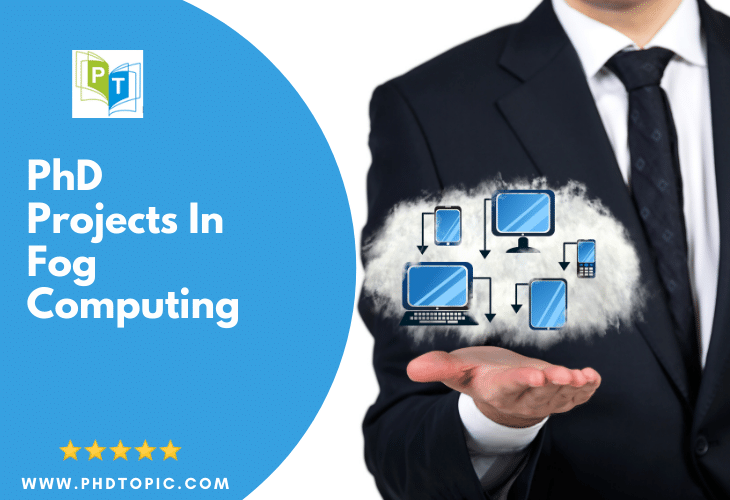PhD Projects in Fog Computing
PhD Projects in Fog Computing offer global training service platform started its assistance activity in the year of 2000. We created our service by 100+ world-class professionals who have 10+ years of experience in all major research fields. Our major scope is to provide standard work that would help students and scholars to become an expert.
To present a successful project, students need to overcome some unforeseen problems: subject area selection, report writing, technical concepts, and many more as we know the expectation of both students and researchers so we can develop good projects for them
 We support for
We support for
- Research Work
- Thesis and Research Paper Writing
- Plagiarism Guarantee with Report offer
- PPT Presentations (Review Wise)
- High Impact Journal Publication (SCI/SCOPUS)
- Journal Paper Writing and Formatting
- Research Methodology (Methods/Algorithms/Pseudocode)
- Questionnaire Design
- Solution for Reviewer comments from Journal Committee
Projects in Fog Computing
PhD Projects in Fog Computing provide research focused project also for students and researchers. Our technical professionals can also deal with any problems like source code design, project development, grammatical errors, etc. Our service is also intended for PhD students who are earnestly seeking guidance for their Fog Computing. For any project, two factors are also essential, i.e., project report and novel and also a trendy topic. To choose a topic, we also provide 1000+ research topics in a particular domain.
Here’s we have enumerated our final report template for students.
- -A Cover Sheet
- -A Signed Sheet
- -Acknowledgement
- -Summary of the Report
- -Table of contents
- -Introduction
- -Professional Considerations
- -Body of the Report
- Problem Analysis and also Specification
- Description of the Research Design
- Code Implementation and also in Testing
- Line-by-Line Code Description
- Appropriate Methods
- Theorem Definition with Evidence
- Evaluation Results
- -Conclusion
- -Future Extensions
- -References
- -Appendices
Know About Fog Computing
…”Fog Computing defines and extends from the cloud computing to provide a seamless end-to-end customer experience. Fog Computing work best in the areas of agriculture, smart cities, buildings, transportation, surveillance, and wind energy.”
Top Myths of Fog Computing
- Edge and Fog are also the same thing
- Fog is a replacement also for cloud
- A Fog is new name also for existing architectures
- Fog nodes are also in constrained devices
- The Fog computing applicable to wireless environments
- Fog creates new silos and also eliminate some physical silos
Major Limitations of Cloud Computing:
- -Strong assumptions that there is sufficient bandwidth to collcet the data
- This can overly strong assumes also for Internet of Things Industry Applications
- g. Energy Utility 0.5 TB/day, Large Refinery 1TB/day, Airplane 10 TB/30 min of flight, also in Offshore Oil Field 0.75 TB/Week.
- -Cloud connection is a pre-requisite of cloud computing
- This can become an insights to under graded connection or connection is also temporarily unavailable
- g. Driver Assistance Applications
- -Cloud computing analytics centralises-Defining the lower bound reaction time of the system
- Some IoT systems need to also be able to wait for the data to get to the cloud
- -Cloud is not designed for the 3V’s (Volume, Variety and also Velocity) of the data that generates from IoT devices
- Cloud could really make storage farmework to tranmit all data capture from IOT devices
- g. Surveilance Camera ( also Visual Security)
Why Fog Computing?
- Synergetic but not exclusive
- Share and also store data efficiently
- Take local decisions when fog devices communicate also in peer-to-peer
- Provide solution to minimze latency, conserving network bandwidth, protecting sensitive and also reducing cost
- Support dense geographical distribution and also mobility
Usage of Fog Sites
- Data Caching
- Computation Offloading
- Real Time Data Processing
Fog Computing Concepts
- Local Data Processing
- Cache Data Management
- Dense Geographical also in Distribution
- Local Resource Pooling
- Load-Balancing
- Local Device Management
- Latency Reduction also for better QoS
- Edge Node Analytics
Fog Computing Tech’s in the Future
- Machine Learning
- Artificial Intelligence
- Fog-Edge Nodes also for Real-time Data Analysis
- Cloud computing also for Data Storage
Major Research Applications and Areas in Fog Computing
Major Research Applications:
- Connected Vehicle
- Smart Grid also in Applications
- Smart Cities Applications
- Wireless Sensors and also in Actuators Networks
- Healthcare also in Applications
- Oil and also in Gas Applications
- Agriculture Applications
- Transportation also in Applications
- Smart Homes Applications
- Video Streaming and also in Gaming
- Environmental also in Monitoring
Major Research Areas:
- Software Defined Networks
- Smart Grid
- Smart Traffic Lights
- Wireless Sensor Networks
- Decentralized also in Smart Building Control
- Internet of Things
- Mobile Content Delivery
- Geo-Distributed Sensor/actuator Networks
- Large Scale Distributed Controlled Systems
